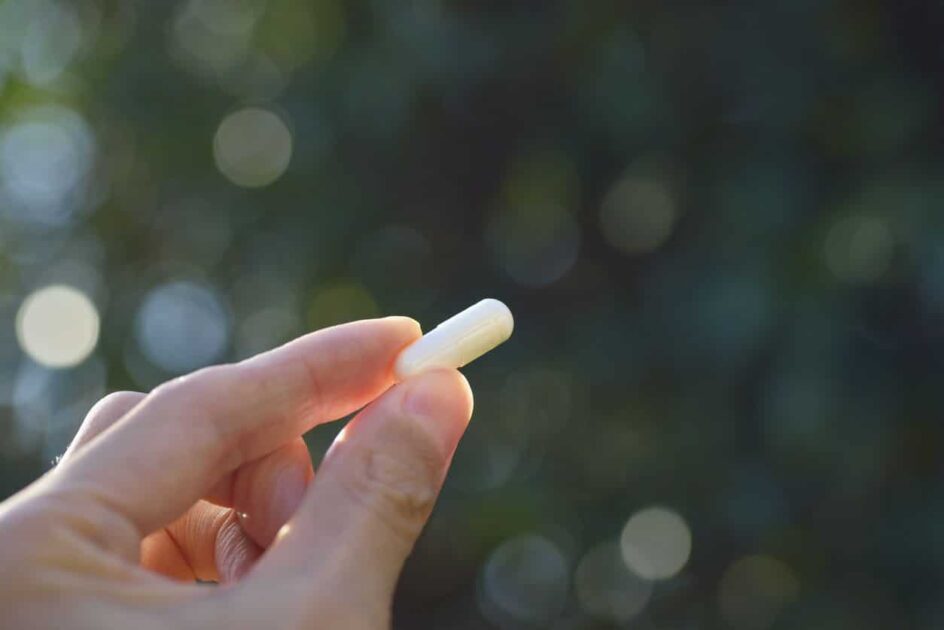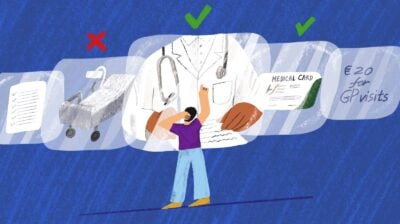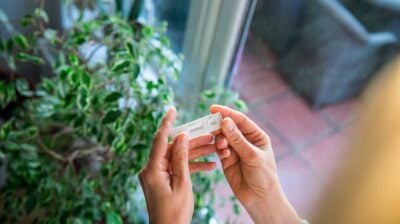How probiotics can help after taking antibiotics
How probiotics can get you feeling better faster

When we have a bacterial infection, a doctor may prescribe antibiotics to help fight the infection. If we are prescribed antibiotics, it’s very important not only that we take them, but that we finish the full course we’ve been given.
Usually we begin to feel better after a few days of taking antibiotics, which is a really positive thing. However, antibiotics can have side effects, and sometimes a person taking antibiotics can experience digestive issues and can also get diarrhoea.
Why do antibiotics cause digestive issues?
There are trillions of bacteria in our gut that are considered both good and bad. In order to stay healthy, these bacteria needs to maintain a natural balance.
While antibiotics will help with the infection, they can also disturb the balance of bacteria in the gut. This is because antibiotics go in to fight off a bacterial infection, wiping out any sensitive bacteria in the gut. This means both good and bad bacteria can be destroyed, upsetting the balance and causing issues with your digestive system.
How do probiotics help with digestive issues after taking antibiotics?
If you’re experiencing digestive issues after completing a course of antibiotics, probiotics can help you improve your digestive system by working to restore the balance of good bacteria in your gut. Read more about probiotics here.
Sona’s Afterbiotic capsules are designed especially to restore your gut health after a course of antibiotics by giving the good bacteria the chance to return at a faster rate, preventing bad bacteria from having the opportunity to take over.
Why do antibiotics give you diarrhoea?
When all of the good and bad bacteria has been wiped out, this could give another bacteria called Clostridium difficile (C. difficile) the opportunity to take over. This can cause diarrhoea and other complications, and can sometimes be dangerous.
How do probiotics help with diarrhoea from antibiotics?
Research has shown that taking probiotics after antibiotics can be an effective way to protect your gut from C. difficile and prevent you from getting diarrhoea.
Probiotics help because they can kill off the harmful bacteria and prevent it from growing in the gut. In particular, probiotics called Lactobacillus and Bifidobacteria can be particularly helpful in preventing diarrhoea from antibiotics.
You can find Lactobacillus in both Sona’s Afterbiotic capsules and their Acidophilus Complete capsules contain 3 strains of the Lactobacillus bacteria (Lactobacillus Acidophilus, Lactobacillus Lactis, Lactobacillus Paracasei), meaning they could also be helpful when taking a round of antibiotics.
Food supplements should not be used as a substitute for a varied diet. Click here for more on healthy eating.
Feeling overwhelmed and want to talk to someone?
- Get anonymous support 24/7 with our text message support service
- Connect with a trained volunteer who will listen to you, and help you to move forward feeling better
- Whatsapp us now or free-text SPUNOUT to 50808 to begin.
- Find out more about our text message support service
If you are a customer of the 48 or An Post network or cannot get through using the ‘50808’ short code please text HELLO to 086 1800 280 (standard message rates may apply). Some smaller networks do not support short codes like ‘50808’.






